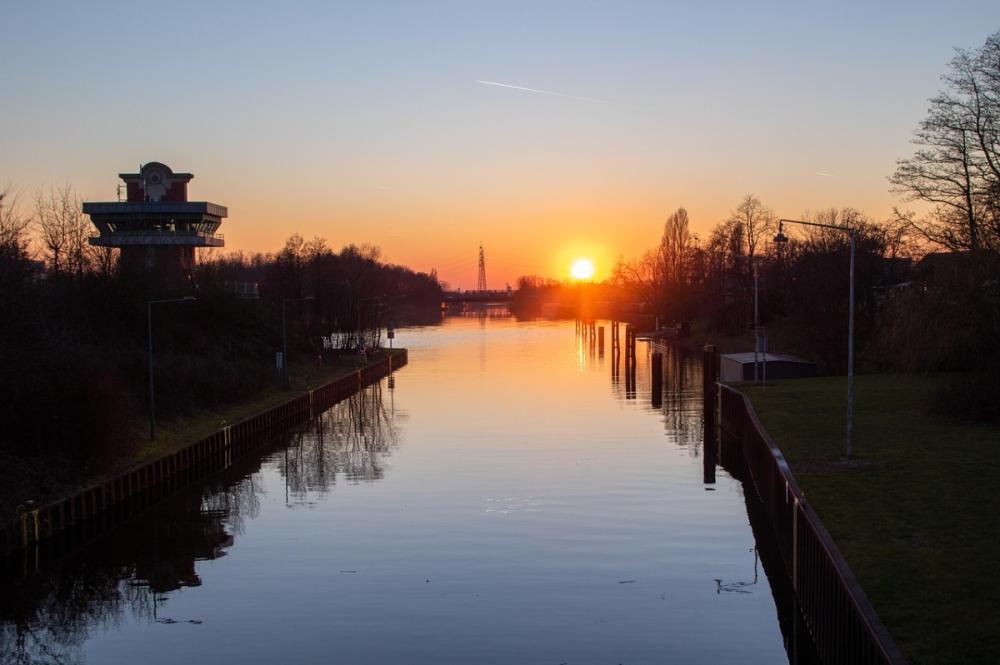

Steve Whitaker, Features Writer
Poem Of The Week: The Lock-Keeper's Daughter By David Wheatley
The Lock-Keeper’s Daughter
Take me away from this terrible place,
very slowly, by barge, rising through
the frothy lock outside my window
like an old cinema organ.
Ours will have been the most tacit
of courtships, the most offhand
of consummations as I step
aboard from the vegetable patch.
Expressionless townsfolk will process
from the church to the water's edge
and my discarded bouquet float by
to the wheeze of an accordion waltz.
I too have dreamed of a tattooed
first mate and an infestation
of cats in the saucepans and hold.
The candour of my wedding dress
will face down scarecrows
and cornfields from the prow.
Take me away from this terrible place
two or three miles down the water,
no more: nowhere else can I
be happy but where the water voles
splash and the kingfisher combusts.
I hear the lock close behind me
and grant the water its steely
abolition of our having
ever passed through. I will walk
the length of the barge backwards
to you and into our future.
Take me away from this terrible place,
very slowly, by barge, rising through
the frothy lock outside my window
like an old cinema organ.
Ours will have been the most tacit
of courtships, the most offhand
of consummations as I step
aboard from the vegetable patch.
Expressionless townsfolk will process
from the church to the water's edge
and my discarded bouquet float by
to the wheeze of an accordion waltz.
I too have dreamed of a tattooed
first mate and an infestation
of cats in the saucepans and hold.
The candour of my wedding dress
will face down scarecrows
and cornfields from the prow.
Take me away from this terrible place
two or three miles down the water,
no more: nowhere else can I
be happy but where the water voles
splash and the kingfisher combusts.
I hear the lock close behind me
and grant the water its steely
abolition of our having
ever passed through. I will walk
the length of the barge backwards
to you and into our future.

Image by Melani Marfeld from Pixabay
The poet’s narrator’s words, her light tripping between observations of location and personal moment, are rendered in irregular metrical harness, investing the tableau with the temporal uncertainty of a reverie. In this disorientated landscape, the relationship between narrator and place, the stepping aboard into a different realm, embodies a more profound form of consummation, as the nuptials fade into obscurity. For, betokening the possibility of disharmony, of misogyny even – the scene is set in a time before our own – Wheatley hints at a sense of unease in the ‘discarded bouquet’ and the disturbingly ‘expressionless townsfolk’ who make up an unseeing throng in the background to the imaginer’s dream.
The unfulfilled ambition, the dream before consummation, finds resolution in refulgent metaphorical counterpoint: the seductive sentimental idyll of a ‘tattooed / first mate’ is discarded at the water’s margin as the flash of a ‘kingfisher combusts’, mirroring the blinding ‘candour’ of a wedding dress. It is fitting that the poem returns to the lock, whose sense of limitless confinement, of ‘steely abolition’, should yield, instead, to the journey ahead. Wheatley’s beautiful final lines graft hope onto aspiration.